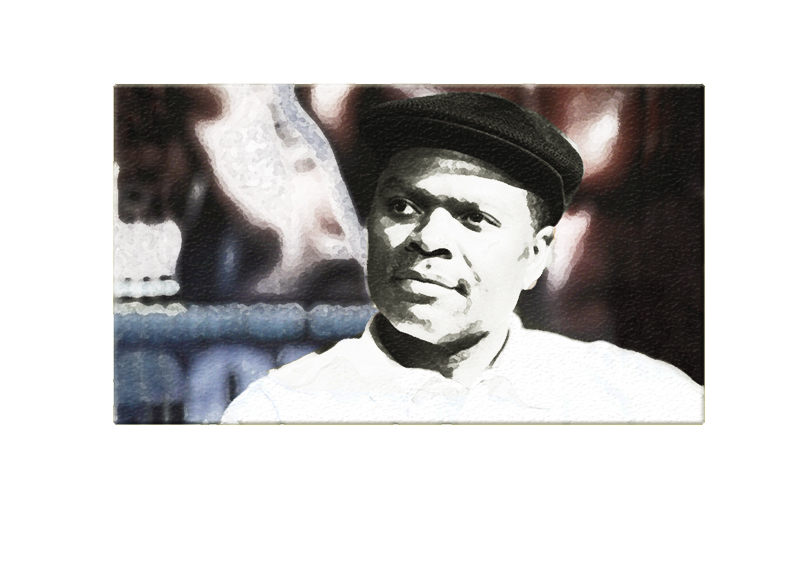Who is the mystery impresario who allegedly called off Drake’s blistering diss that would have supposedly ruined Pusha-T’s career?
Originally, a used car salesman in the Fifth Ward of Houston, Texas. James Prince (born James A. Smith), or J.Prince is the founder of Rap-A-Lot records and claims the record label is named after his rapper brother Sir Rap a Lot, who in turn named himself “Rap a Lot” due to his brother running a used car lot.
As he tells it, J.Prince used his connections to the streets to bring imported cars to make a substantial profit. Eventually, making his way into the music business in 1986 with the creation of Rap-A-Lot records. The record label was once known as the most prominent label in the Southern United States helping launch the careers of; the Geto Boys, Z-Ro, Devin the Dude, the solo career of Pimp C and many more. And it was J.Prince’s son, Jas Prince, who discovered Drake from Myspace and flew him to Houston to get him signed to the Young Money music label.
Many of the gangster stories that the Geto Boys (the first big act for Rap-A-Lot) spoke of on their records reflect the ethos of J.Prince himself who told the members to write his vision — but make it rhyme. And so they did, after failing to achieve success with their earlier incarnations, the Geto Boys moulded by J.Prince became a hit.
Over the course of time, J.Prince became known as a mediator in the hip hop world. His influence brought him to Los Angeles, California to the set of the Hypnotize music video so that he could warn rapper Notorious B.I.G. and P.Diddy of the plot against the rapper’s life and to take the threat seriously.
As the proverb goes, advice most needed is least heeded. While Prince’s attempt to save the life of the Notorious B.I.G. went on deaf hears — there is a significant reason to hear what he has to say. Mr.Prince has beaten every court case put forward his way, including felonies.
Alleged Criminal Conspiracy
In 1988, a car with dealer-license plates from a used-car lot owned by Mr.Prince in Houston was stopped near El Paso, Texas. Authorities found 76 kilograms of cocaine in a hidden compartment, and one Houston man was convicted. With him, was a cousin of Mr.Prince who identified himself as a salesman for the car lot. This prompted officials to launch an investigation into Mr.Prince who was known for publicly promoting gangster rap. In 1993, the investigation slowed after Mr.Prince complained to prominent Democrat and member of the Congressional Black Caucus, Maxine Waters, who very publicly campaigned against racism and racial profiling.
Congresswoman Maxine Waters went so far as to start an internal probe into the conduct of the officers handling the case, specifically targeting then DEA agent Jack Schumacher, who had been part of six fatal shootings during his tenure — though he had been cleared of any wrongdoing in each case.
Subsequently after, the rapper Scarface, originally of Geto Boys fame, had a song taunting the DEA, released in an album recorded at the time of the dispute. The lyrics contained in the song described shooting local police. Meanwhile, Mr.Prince continued to argue charges of racism and a conspiracy to target his label.
Adding to the confusion was the political climate at the time. Racial tensions had reached a boiling point, culminating in the Los Angeles riots of 1992 that became known as the “Rodney King” riots.
Notably, The 1993 Geto Boys’ “Till Death Do Us Part” album’s hit video “Crooked Officer” was banned by MTV because it depicted the shooting of a police officer. Though it was a direct response to the public beating of Rodney King directly referencing the incident in the song lyrics. And in 1996, that song and the Geto Boys’ other raps became a presidential campaign issue when Republican Bob Dole cited the group directly as an example of music that needed to be censored.
Hindsight is 20/20
According to conservative news site, CNSnews.com, the House Government Reform Committee reviewed the matter and found no concrete evidence of any violations involving the officers’ conduct in 2008.
Records reviewed by The Freeze revealed that many of the officers involved in the case maintain there was political pressure applied during the proceedings. Former DEA agent, Jack Schumacher, had been an officer commended for his work garnering awards and had been handpicked to work on the case rather than a rogue officer as projected by the congresswoman.
In a stunning revelation, Mr. Schumacher who was the lead investigator in the case tells the court that an anonymous source told him, Mr.Prince gave then Vice-President Al Gore a $200,000 donation after a visit to a local Houston church of which Mr. Prince was a prominent figure. Though this specific allegation has never been proven — it is stated in Mr. Schumacher’s testimony that in his professional opinion that the source and their information were believed to be credible.
At best this suggests Prince used a prominent politician as a pawn, and at worst suggests corruption with politicians complicit in murder and drug trafficking as told by Mr. Schumacher’s testimony.
At best this suggests Prince used a prominent politician as a pawn, and at worst suggests corruption with politicians complicit in murder and drug trafficking as told by Mr. Schumacher’s testimony. Utilizing the guise of racial discrimination in a tumultuous political climate, Prince was able to avert criminal prosecution.
Crooked Cops
In a twist of events, it was not then DEA agent Jack Schumacher but another officer who helped work the case, Chad Scott, found to be corrupt. He too was mentioned alongside Schumacher by name in the “Last of a Dying Breed” Scarface album.
Chad Scott had a reputation that proceeded him, christening himself a “white devil.” One drug dealer went so far as to put a $15,000 hit on him, as reported by The New Orleans Advocate.
Quoted in the article is Arthur Leman III, a veteran defence attorney who accused Scott of ‘outrageous misconduct’ in a federal drug case. Speaking with The Advocate, he exclaims, ‘I’ve always felt that he was sort of off the books, that he was a guy who would go to extremes that I felt violated a sense of equal justice.’
Many of his fellow officers felt that he did not follow DEA policy. Due to Mr.Scott’s actions, many federal drug cases may now come into dispute.
However, there are others who claim his methods though unorthodox produced results.
Mr. Scott is charged with stealing cash and narcotics during raids.
On May, 26 2018 J.Prince posted news about Mr.Scott’s charges on Instagram. But Mr. Prince’s interests aren’t limited to the topic of law enforcement.
J.Prince The Boxing Promoter
J.Prince seems to have a foothold in a lot of worlds. He was the former manager for both Diego Corrales and Floyd Mayweather Jr stirring up the bad blood between the rivals. Prince went so far as to invite Corrales’ wife to sit near Mayweather Jr. after a domestic violence dispute between Corrales and his wife were made public.
It is also alleged that Prince sent men to a gym where Floyd was training to resolve a financial matter. There is a story told by Bob Arum, where he paid $600,000 to settle the matter between J.Prince and Floyd Mayweather.
According to Arum, people in Mayweather’s camp were assaulted with baseball bats at Arum’s gym.
“I got a call that there was a disturbance at my gym. Floyd apparently had asked us not to do a fight in October but in December after Prince’s contract with him had run out,” explains Arum of the situation leading up to the assault.
“The disturbance at my gym was some people came over with or without the knowledge of James Prince, and proceeded to break a couple heads of people in Mayweather’s camp with baseball bats and the gym was splattered with blood,” tells Arum.
But Arum also explains his personal encounters being more cordial. “I had met Prince while he was Floyd’s manager and he conducted himself very business-like, and I’ve dealt with him since and he’s been a man of his word. I have no complaints with James Prince,” said Arum.
Prince would also later become the manager of Andre Ward.
Recommended Reading — Why Lil Dicky Continues to Be Problematic
The “Courtesy” Call
On the hip hop side of things, J.Prince has continued to be a controversial figure. Just a few years ago there were rumblings of veiled threats being given on Drake’s behalf, under the guise of a “courtesy” call.
Prince has been known to extend these messages to his adversaries; Diddy, Suge Knight, Master P, and most notably Lil Wayne and his management over the years. The latter regarding royalties owed to Prince for Drake’s music.
It is alleged that the song “Mob Ties” off of Drake’s Scorpion album is in reference to Drake’s connection to J. Prince and the latter’s alleged gang affiliation.
This 2015 Noisey article details his reputation. The article refers to J.Prince as a southern “Boogeyman,” due to his street credibility. It also speaks on Prince’s business acumen and how he turned a small indie label into a household name in Houston. Rap-A-Lot built its success with releasing several albums at a time when the market was flourishing in the 90s.
Handling Business
However, while business may have been good for Prince, some artists were unhappy with his management. Cedric White, also known as 2 Low sued Prince (named Smith in the lawsuit) for failing his fiduciary duty.
In the suit, White cites not being paid for co-writing credits, merchandise, or performances. Initially suing for $2.5 million for fraud, negligence, breach of fiduciary duty and negligent misrepresentation.
Priority Records was also labeled as a defendant in the suit. Together, Rap-A-Lot and Priority released 2 Low’s Funky Lil Brotha , with Priority taking care of the distribution. But Priority claimed that they cut off negotiations with White and his mother due to tortious interference from Rap-A-Lot.
The matter was eventually settled out of court to an undisclosed amount.
Who is J.Prince, really?
J.Prince has had success for decades in the music business. If it were not for him, the Geto Boys would have likely never caught-on and the world never have been introduced to the rapper Scarface.
However, the impresario behind Rap-A-Lot’s success is someone with a questionable past. The allegations surrounding him in the 90s paint a picture of a cunning man who built a career off of his street-smarts.
Without a doubt, Prince is someone with friends in high places. This seemingly is why Prince has been able to avoid the law. His previous encounters with law enforcement have been the subject of much controversy.
Was Prince unfairly targeted in the past? Or did he use his cachet to pull the wool over everyone’s eyes?
There are no easy answers. Racism was and still is prevalent within police members. But looking at the evidence presented, there is reason to believe of his involvement as part of a criminal conspiracy. His actions have not completely exonerated him in the eyes of public opinion.
Many record labels have been supposedly built off illicit activity, Rap-A-Lot is not unique in that regard. However, J.Prince’s name has been around as a sort of silent enforcer for decades. It suggests a violent man rather than the even-tempered personality that he puts on.
Below are excerpts of the court proceedings’ transcript. Highlighted is pertinent information.


